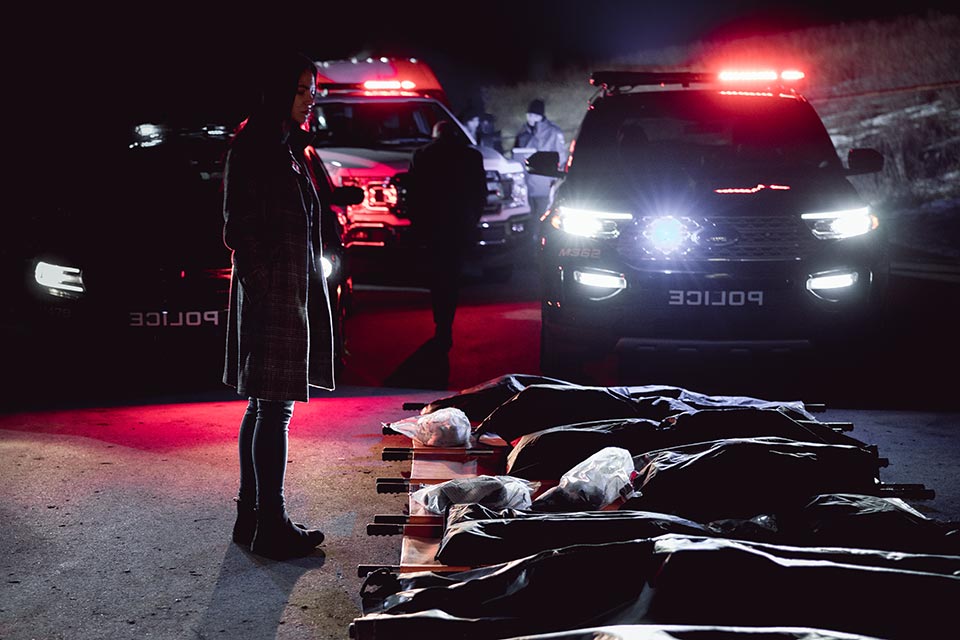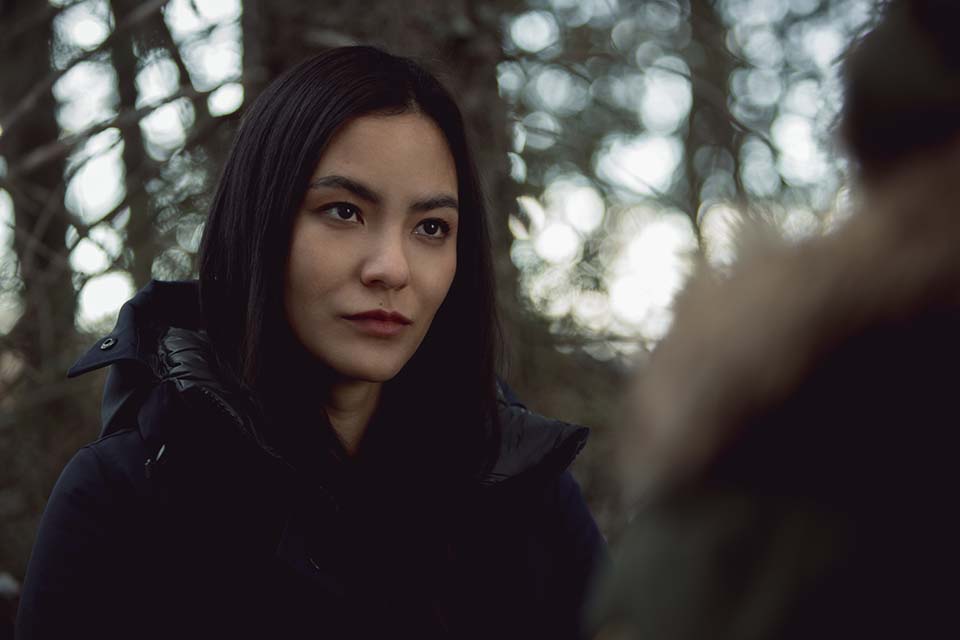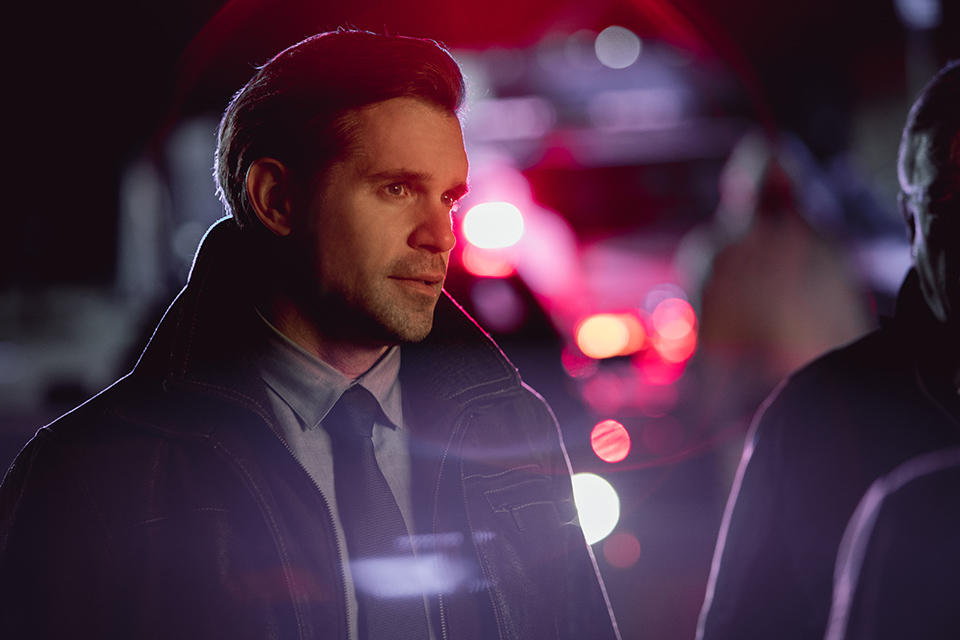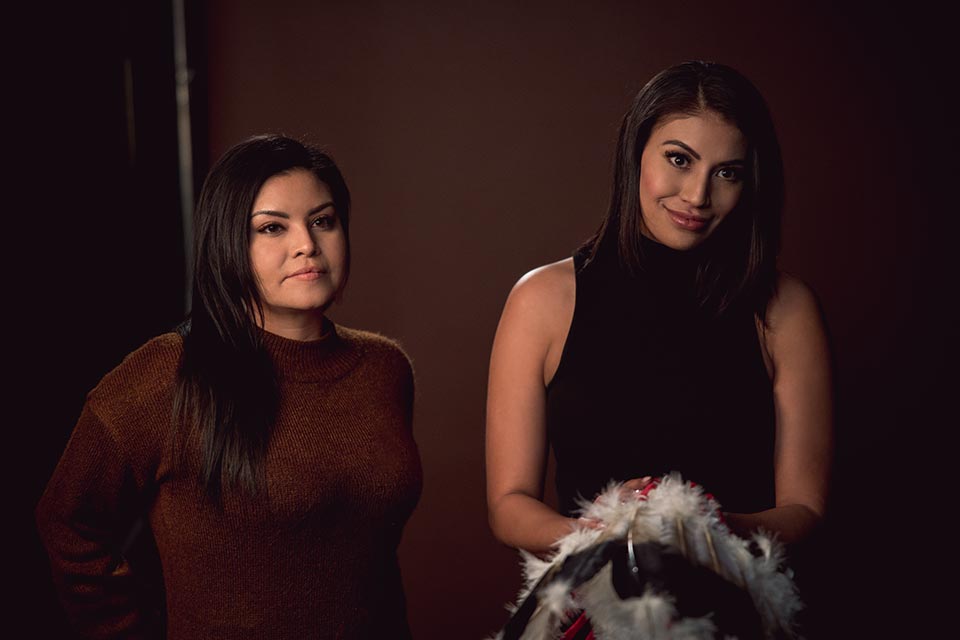CRITIC’S VIEW: TRIBAL
★★★★
NITV, Thursday 8.30pm & SBS On Demand
The second season of this Canadian First Nations police drama picked up from season one’s cliffhanger and continues its unique storytelling drawing on real-life crimes and events. It was created by Ron E Scott (who also writes and directs), a member of the Metis Nation in Canada whose previous series Blackstone focused on Indigenous life on a fictional reserve, and who wrote Tribal as a way of exploring the polarisation between the Indigenous and non-Indigenous cultures; Scott himself is of mixed heritage.

Rather than the kinds of sensationalised crimes that often feature in cop procedurals, Scott wanted to keep the crimes grounded in real issues affecting Indigenous Canadians, telling the stories through an Indigenous perspective.
Season one opened with the mismatched cops partnered together trope, but it’s not your standard unlikely pairing. After the local Justice department takes over control of the tribal police of the Nehiyawak First Nation (which previously oversaw only the local native reserves on the outskirts of the city), officer Sam Woodburn (Jessica Matten) is appointed as the tribal police’s interim chief; her predecessor, Daniel Crowchild (Julian Black Antelope), has been suspended amid allegations of corruption. In a bid to integrate the local and tribal police, she’s partnered with old-school detective Chuck Bukansky (Brian Markinson, most recently seen in Fargo), a veteran of the metro police’s major crimes detective unit, decorated for bravery, and recovering from a traumatic shooting incident. Bukansky is also sexist, racist and decidedly unhappy with the new extension of the tribal police forces’ powers.
Their partnership in which Woodburn is technically Bukansky’s boss – and the integration of the tribal police into the metro force – might be just a cynical political move (Bukansky sees her as a token appointment to put a younger, prettier face at the head of a force accused of corruption), but Woodburn takes the job seriously and, eventually, “Buke” is forced to as well, especially once it comes to light there’s corruption within the metro force.

The crimes they investigate echo real cases, among them violence at pipeline protests, murdered former gang members, healing lodges (correctional institutions designed specifically for Indigenous inmates), poaching and missing and murdered Indigenous women, culminating with the mass grave of Indigenous bodies that Buke discovered at the end of season one, which becomes an over-arching storyline this season. Other crimes in this second season are equally shocking, particularly one focused on “starlight tours”, based on real-life events between the 1970s and the early 2000s in which police officers would arrest Indigenous men, drive them to deserted rural areas in winter, and abandon them, often leading to the men’s deaths from hypothermia. Alongside such confronting crimes, this season evolves into more character-led drama as well; we learn more of Buke’s backstory, and of Woodburn’s struggle to deal with her two “identities”.
Filmed in and around Calgary and on the Tsuut’ina Nation (although the city in which the series is set is never explicitly named), Tribal isn’t the most slickly produced series and is occasionally victim to some leaden dialogue and tired tropes (it’s hard to find a crime procedural that isn’t, let’s face it) but Scott’s portrayal of Indigenous people is nuanced: Woodburn, for example, is of mixed Indigenous and European ancestry and doesn’t come from a dysfunctional background. She’s from a well-off family, her father was a judge and she lives in a cool loft apartment with her lawyer boyfriend.
And Tribal’s drawn-from-real-life premise makes it much more compelling than many fictional procedurals, even if that means some difficult viewing.




